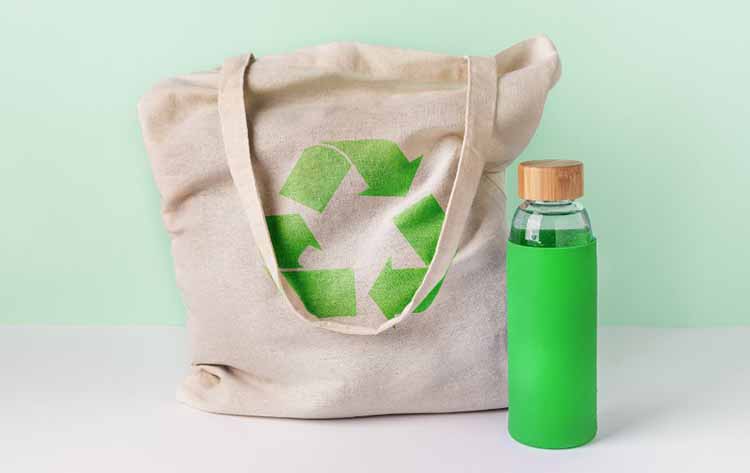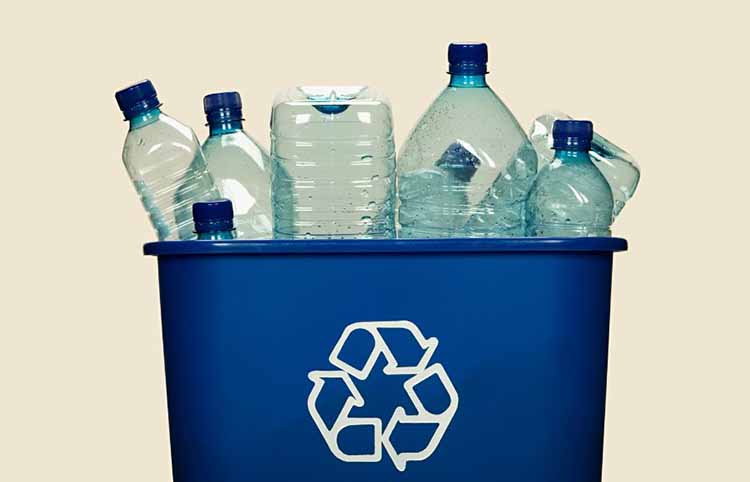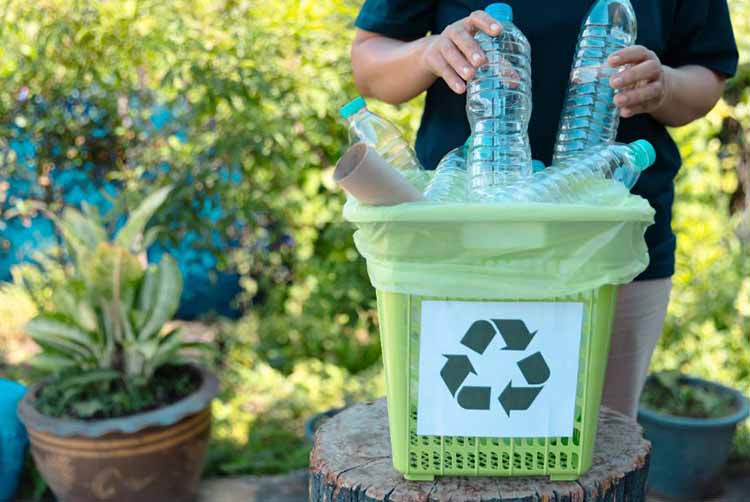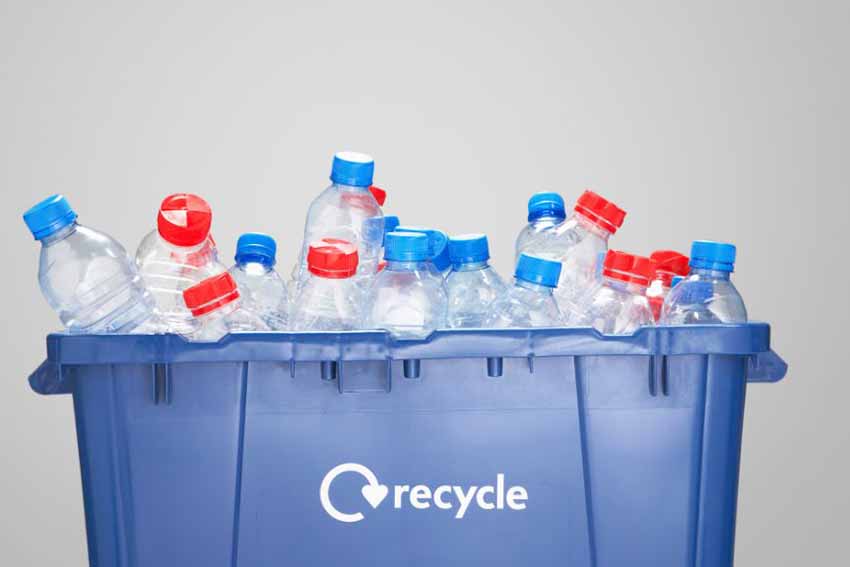What really happens to your plastic water bottles after you toss them in the recycling bin? The truth might surprise you.
Despite our best efforts, many plastic bottles never get properly recycled. They eventually contribute to a growing waste problem. Here’s a detailed answer to a burning question- “Are plastic water bottles recyclable?”
Let’s get to know the answer and get out of some common myths!

Are Plastic Water Bottles Recyclable?
Yes, plastic water bottles are recyclable, but the process is not easy. Only about 30% of these bottles are recycled in the USA.
And even then, most are downcycled into lower-quality items like polyester fibres for clothing or carpets, which can’t be recycled again. This limits the plastic’s lifecycle. The recycling process breaks down PET’s polymer chains, which require large amounts of virgin plastic to make new bottles.
And, yes, this process is costly and less effective. To reduce environmental impact, it’s important to reduce plastic bottle usage and choose reusable alternatives.
Why Are Major Plastic Water Bottles Failed to Be Recycled?
Although it’s possible to recycle plastic water bottles, the reality is more complex. Here are the key factors that hinder the recycling process of plastic water bottles:
Limited True Recycling
Ideally, a recycling process involves repeatedly using a material without degradation. This works well for materials like aluminum, where separation and re-use are efficient. However, plastic recycling often falls short.
While some plastics (e.g. hard bottles) can be recycled, the process involves “downcycling” them into lower-quality products. It’s because of the contamination from attached lids or different plastic types.
Also, some low-quality plastics simply can’t be recycled and end up in landfills or incinerators.
Economic Factors
PET is one of the most widely used plastics for water bottles. It’s sourced from non-renewable crude oil. Recycling PET can be even costlier than producing new bottles, which makes recycling economically unappealing.
Companies prioritise profits, so they go for cheaper, single-use bottles. Historically, companies like Coca-Cola used refillable glass bottles but switched to cheaper, single-use plastic for higher profits.
Recommended: Best Insulated Plastic Water Bottle
Lack of Infrastructure
A big reason why most PET plastic bottles fail to reach recycling centers is the absence of Container Deposit Legislation (CDL) in 40 states.
Only 10 states have CDLs that offer refunds for returning beverage containers. Without these incentives, people are less motivated to recycle. This leads to more bottles being discarded as trash or litter.
Also, the low value of PET at recycling centers discourages recycling efforts. For this, many bottles ending up in landfills instead of being reused.

Beverage Container Recycling Rates By State:
| States | Recycling Rate |
| California | 75% |
| Connecticut | 51% |
| Hawaii | 65% |
| Iowa | 71% |
| Maine | 84% |
| Massachusetts | 57% |
| Michigan | 92% |
| New York | 66% |
| Oregon | 73% |
| Vermont | 75% |
The Process of Recycling Plastic Water Bottles
Recycling plastic water bottles involves the steps below.
- It starts with collections from homes, businesses, and public places. Workers at recycling facilities then separate these bottles from other materials like metal and glass and sort them by the type of plastic.
- After sorting, the bottles are cleaned to remove residues from food, liquids, or chemicals. The clean bottles are ground into small flakes. These flakes are melted and formed into tiny pellets about the size of a grain of rice.
- Manufacturers buy these pellets to create new products such as toys, tools, and electronic gadgets.
Recycling is indeed an amazing way to conserve resources and protect the environment, but there are limitations! Scroll down to know more.
Why Does PET Go Through Downccycling More Than Recycling?
Here’s why downcycling is more real for PET plastics compared to recycling.
The Challenge of PET Polymer Chains
PET (Polyethylene Terephthalate) poses some challenges when it comes to recycling.
When PET bottles arrive at a recycling facility, they undergo shredding and cleaning. This process breaks the polymer chains that make PET’s structure. With these chains broken, recycled PET loses the strength needed to make new products.
Aluminum can be endlessly remelted and reused without losing quality. On the contrary, PET’s quality decreases with each recycling cycle.
Limited Recycling of Polyester Fabrics
Although some boutique companies (e.g. Patagonia) offer recycling programs for used polyester threads, a widespread system for recycling polyester fabrics does not exist.
For this, clothing, carpets and other polyester products end up in landfills and cause environmental pollution.
Recommended: Best Clear Plastic Water Bottles
Better Alternatives to Plastic Water Bottles
Switching to better alternatives for plastic water bottles is a smart move for both you and the planet.
Try to use reusable bottles made from stainless steel, glass, or BPA-free plastic. These bottles are not only good for the environment but offer other appealing features that single-use plastic water bottles do not.
Stainless steel keeps your drinks hot or cold for hours, glass doesn’t hold onto flavours, and BPA-free plastic is super light and easy to carry. Going reusable not only helps the environment but also saves you money in the long run. It’s a win-win!

FAQs
Why Should You Use Recycled Plastic Bottles?
Using recycled plastic bottles helps reduce waste and saves resources. It reduces the need for new plastic, which lowers pollution and conserves energy. Recycled plastic also keeps bottles out of landfills and oceans. This helps protect wildlife and the environment. By choosing recycled plastic, you support a circular economy and promote sustainability.
Should You Flatten Plastic Bottles for Recycling?
No, you should not flatten plastic bottles for recycling. Studies have shown that flattening bottles can cause sorting issues, and they might end up with paper instead. So, keep the bottles in their original shape to ensure they are correctly sorted at recycling facilities.
Why Are Water Bottle Caps Not Recyclable?
Water bottle caps are not recyclable because they are made from a different type of plastic than the bottles. The caps have a lower melting point and can contaminate the recycling process. They can also jam the machinery at recycling facilities. This makes it difficult to process them correctly.
Verdict
That’s the answer to ‘Are plastic water bottles recyclable?’
Plastic water bottles are recyclable, but the process has many challenges. Only a small percentage gets recycled properly and the major part ends up in landfills or being downcycled. The quality of recycled PET decreases with each cycle, which makes it less effective.
How can you help? Reduce plastic use, choose reusable bottles, and always recycle correctly.

